




2023 is here, and she is coming in hot! As we kick this New Year into high gear, I want to thank anyone currently reading our publication.
Heading into our fourth year, I cannot help but reflect on the incredible people and ideas PUSH has had the privilege of working with and on. From the secrets of success shared by our very best colleagues, public triumphs, private obstacles, or the dark circumstances surrounding the pandemic recovery, the PUSH team has worked to provide an honest inside look at the peaks, the valleys, and the remarkably transformative and necessary nature of the sports tourism industry.
In 2023, we are increasing our digital reporting investment to bring you even more of the most critical and relevant stories, tools, and valuable information we can find. Stories you won’t find anywhere else, stories that report on the human impact of what our peers do as much as the business impact. We hope PUSH readers will see themselves in these personal accounts, taking inspiration and lessons learned with them on their roller-coaster ride as passionate professionals. It’s these personal narratives that create our future.
Thank you for being with us on this journey. We are looking forward to sharing more with you in the New Year.
Wishing you a successful and enjoyable (remember that part. it’s important) 2023!
Warmest Regards,
x Matt Dunn
Page 6 Page 12 Page 16 Page 22
Destination Spotlight - Jerrine Lee
Quiet Quitting
Destination Spotlight - Luchie Javelosa
7 Errors when Booking Flights
Page 26 Page 30 Page 34 Page 38 Page 40
Industry Spotlight - Kris Smith
7 Habits, 6 Months
State Association Spotlight - William Bloom
Team Sports Can Lead DEI Efforts
Industry Confidential
What are your job title and responsibilities?
I am the Vice President of Sales for Richmond Region Tourism. My focus is on leading the destination sales team and sports development team in their effort to recruit meetings, conventions, and sports tournaments. I oversee the strategic planning and budgeting for the sales department and serve as the liaison to our convention center and hotel partners.

What was your first job in the industry?
My first job in the industry was as a Sales Coordinator for the Greater Richmond Convention Center.

What aspect of your job do you like most?
I love building relationships with clients and helping them reach their goals. I love coaching my team, helping them win business, and watching them grow professionally and personally.
What did you want to be when you grew up?
I wanted to be a teacher or a lawyer.
How did you get into this line of work?
I decided to go to graduate school at Virginia Commonwealth University to pursue a master’s degree in Recreation, Parks, and Sports Leadership, and needed a full-time job. I saw the Greater Richmond Convention Center was hiring, and I applied. The hiring manager for that position was also an alumnus of James Madison University (JMU), and I often joke that I got the job because of JMU. While I’m sure it carried some weight, I think my personality, tenacity, and drive sealed the deal.

Please tell us about your role as Board Liaison of the Sports ETA Diversity, Equity, & Inclusion Community.
Before getting on the Board of Directors for Sports ETA, I was a part of the original task force formed back in 2020 following the murder of George Floyd. The task force was organized to assist the staff at Sports ETA in reviewing industry standards, emerging programs, and Sports ETA policies, education, and programs to further enhance their commitment to diversity, equity, and inclusion in the sports events and tourism industry. From there, the task force transformed into the Sports ETA DEI Community, where I first served as Co-Chair along with Christine Simmons. The community allows members to share best practices around DEI with virtual calls. It recommends educational content and helps with member
engagement at Sports ETA’s in-person events.

What has been your biggest accomplishment thus far in your career?
My biggest accomplishment has been my growth at Richmond Region Tourism. I started in 2016 as a Convention and Sports Services Manager. In 2021, I received my fourth promotion to Vice President of Sales. From what I know about working in this industry, growth at this speed is unprecedented at Convention & Visitors Bureaus. I’m grateful that I have leadership that saw potential in me and allowed me to excel as a leader in the industry.
How do you manage your daily tasks?
Schedule blocking and task lists are the main ways I manage and organize my daily tasks.
How do you stay on top of sports tourism industry trends?
I stay on top of sports tourism trends through industry publications from PUSH Magazine, Sports ETA, SportsEvents Media Group, and Northstar/TEAMS. I attend education sessions at industry shows. Sports ETA Community calls are also a great resource.
How are you developing key partnerships in the marketplace?
Building authentic relationships with people rooted in trust and mutual respect. Attending industry trade shows and conferences and networking.
Who was your greatest mentor?
Fortunately, I have a village of leaders that have mentored me through my career, and I’m still adding to my village. One of the things I appreciate most in this industry is the people willing to take the time to listen, advise, and share their experiences with you.
What are the top 3 things you’d want to pass on as advice to a young, up-and-coming industry professional?
Advocate for yourself and never waiver on your values. Get involved in the industry by serving on committees. It’s an excellent way to network with peers and create a name for yourself. Keep a growth mindset and never stop learning.
What are you most passionate about, and how did you get started?
I’m passionate about helping others learn and grow by sharing my knowledge from known experiences. Early childhood is where it started – I took the responsibility of being an older sister very seriously. I’ve always found my place in a leadership capacity where I’ve had the opportunity to mentor and teach others. My time as an adjunct professor for the Center for Sport Leadership at Virginia Commonwealth University solidified this beyond a passion. Part of my purpose in life is to serve and teach others. This simple act fills my heart with joy.
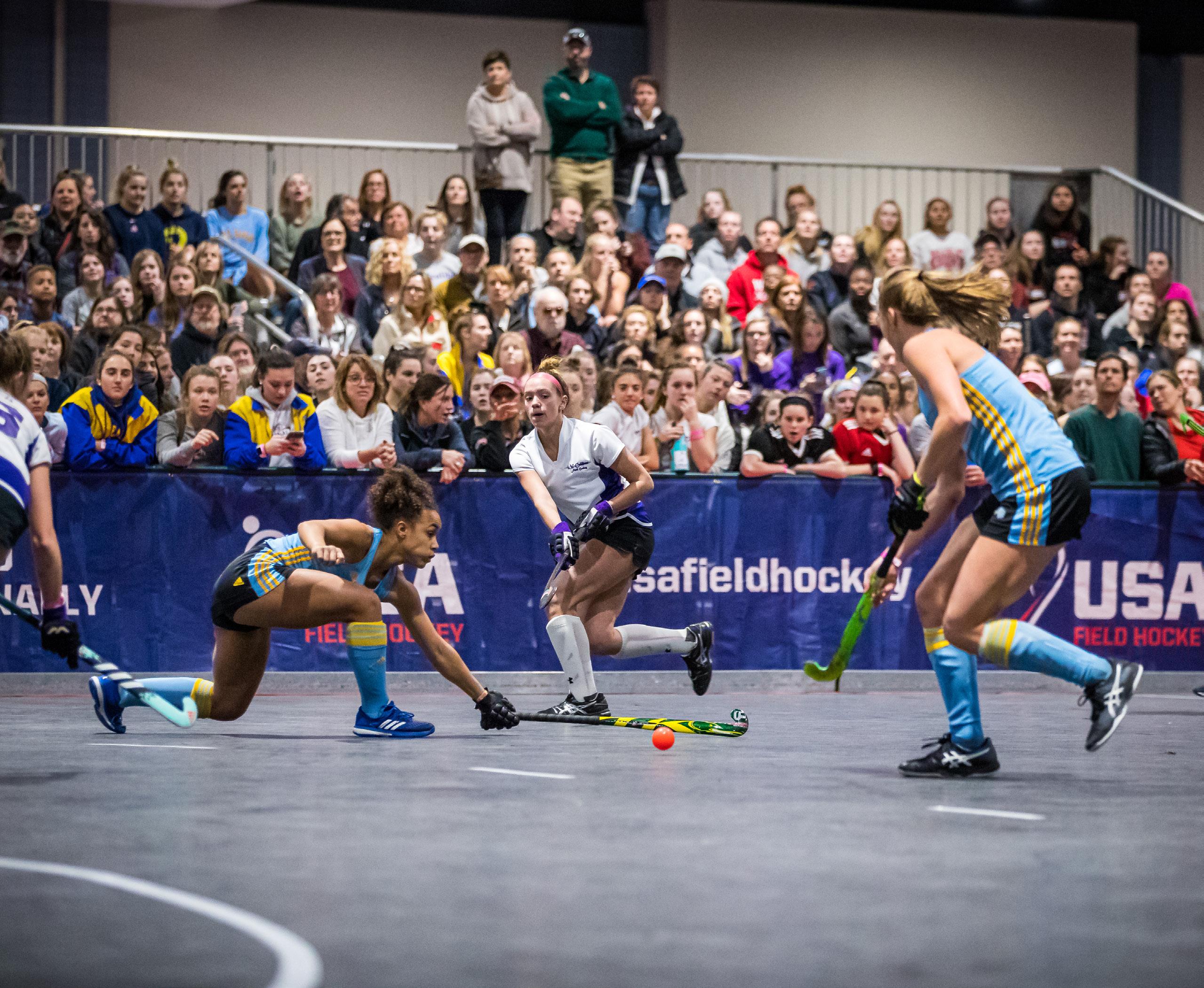



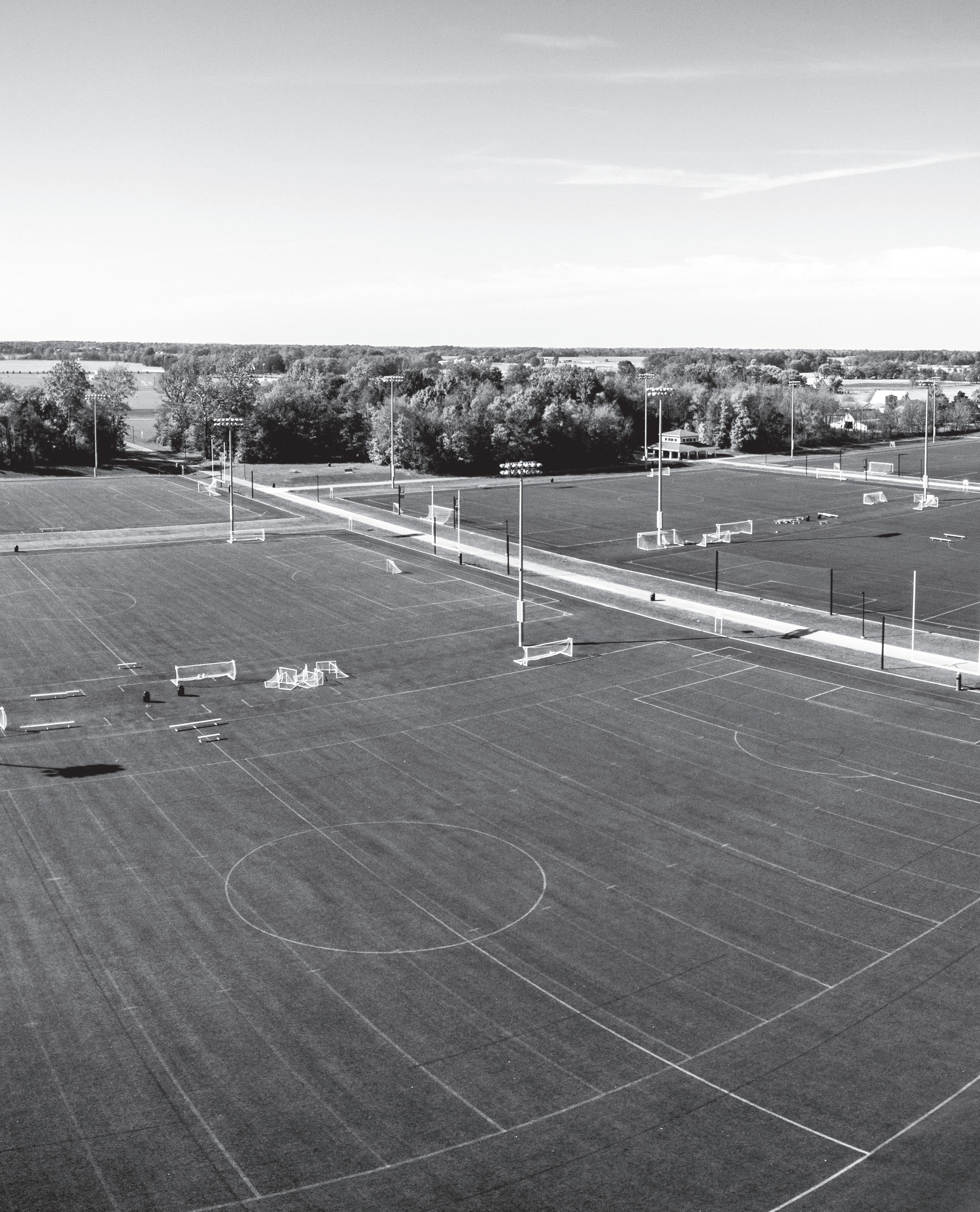
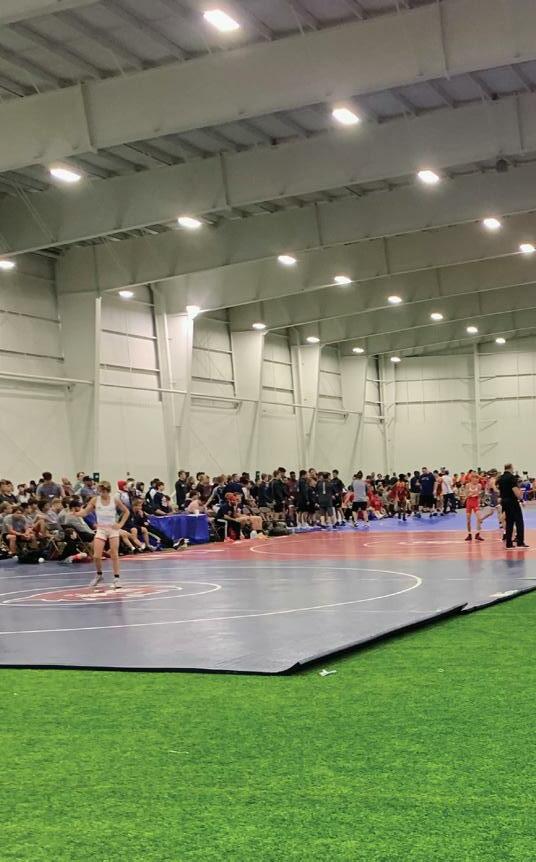








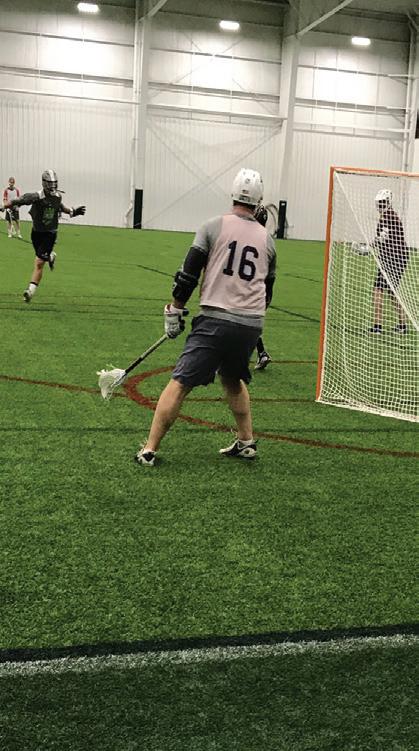
“Quiet quitting” is an old behavior with an updated name. Is your work environment where people want to go the extra mile? Indications show that quiet quitting is usually not just about an employee’s willingness to work hard, more creatively, and for longer hours, but more about a manager’s talent in building a relationship with their employees so that they are not watching the clock until the end of the workday.

We all decide each day: How much effort are you planning to give your organization at the beginning of the day? Or are you planning to offer just enough effort necessary to keep your job?
Last year, and even the first few weeks
of this year, those who choose the latter are identified as “quiet quitters.” They dismiss the idea that their work is the center of their daily life. They refuse the belief of giving everything and working long hours. They avoid requests to go above and beyond what they believe should be expected of an employee.
To understand the quiet quitting trend, we must ask ourselves what differs between those who view work as a priority that gives them purpose versus those who are going through the motions.
Quiet quitting is frequently more about a manager’s skill to build relationships with employees and less about an employee’s motivation to work hard and creatively to where they are not thinking of quitting throughout the workday.
Understaffed, burned-out, and years of long hours have all led to employees quiet quitting.
It is expected that at some point in your career, you will or have worked for a manager that turned you toward a quiet quitting mindset. Feeling underrated and unacknowledged leads to this.
Maybe a manager was biased, or they engaged in inappropriate behavior. A dip in an employee’s motivation is usually credited to a manager’s actions.
Many employees have also worked for a manager who was motivated to work hard and grind to accomplish organizational goals and objectives. Therefore, sporadically work late hours or have early mornings and do not resent their manager who inspired them.

If you have employees you suspect quietly quitting, ask yourself whether the problem is with your direct reports or an issue with you and your leadership skills.
If you are self-confident in your leadership skills and only one of your employees is unmotivated, the issue may not be yours. Even the best managers have direct reports that are quietly quitting.
Regardless, take an honest look at your motivational approach to obtain results from your team members. When asking your employees for elevated productivity, do you go the extra mile to ensure your team members feel valuable? Conducting open and honest dialogue with your colleagues about expectations of one another can make all the difference.
Trust is the most crucial consideration. When employees wholeheartedly trust their leader, they also believe their employer genuinely cares about their well-being.
Workplace trust can be linked to three behaviors: First, creating positive relationships with your employees. Meaning you genuinely look for-
ward to connecting with them. Common interests make it easy to build relationships. Those employees with whom you do not have common interests can lead to more challenging relationships. We can attribute this to age, ethnicity, gender, or political affiliation. Seek out and discover common ground with these employees to help build trust.
The second is reliability. Leaders should always be completely honest and deliver on promises. Leaders believe they are more reliable than others recognize them to be.
The third behavior in building trust is expertise. Are you well-versed and knowledgeable in your field? Have you needed to catch up on current trends? Is your advice valued? Experienced managers provide transparency, a clear path to accomplish goals, and a vision for building trust.
When building trust within an organization, the likelihood of quietly quitting is minimized considerably, the approach of yesteryear cannot be the same in today’s day in age. We must build welcoming, inclusive, safe, and positive workplaces.
It is easy to point a finger and blame lazy or unmotivated workers for quiet quitting. Team members wish to give their time, energy, positivity, and creativity to managers and organizations they feel deserve it.
R e a c h t h e Y o u t h S p o r t s A u d i e n c e l i k e N e v e r B e f o r e
Everything you need to put your events in front of the right players Level up your event marketing all-in-one place through Playeasy & TeamSnap’s partnership.
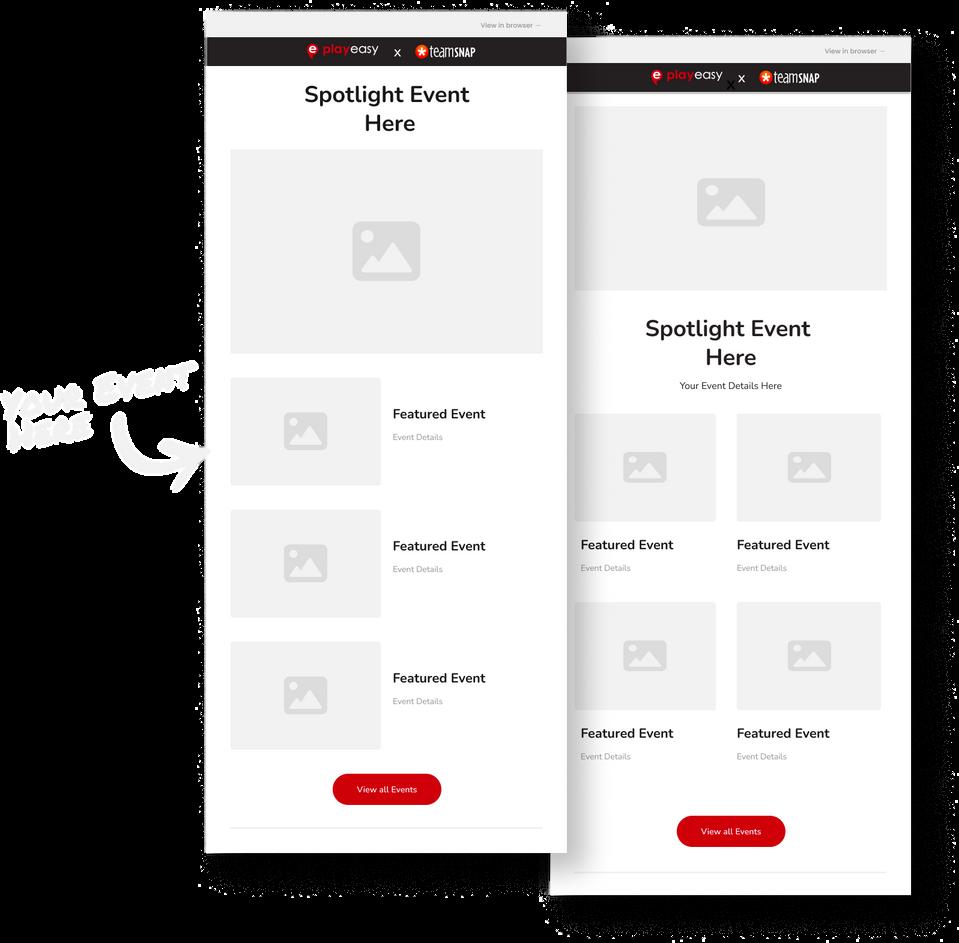
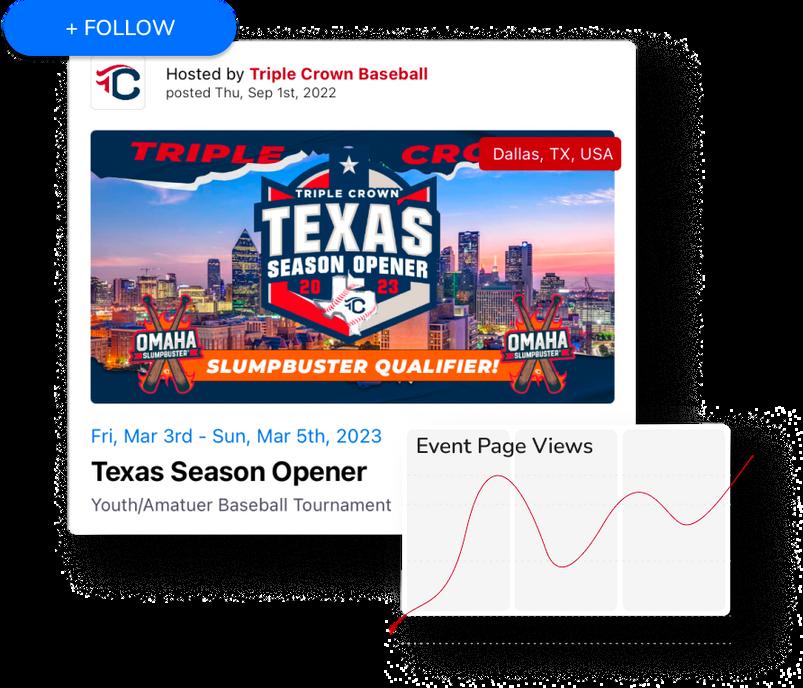


G e t m o r e f r o m e v e n t m a r k e t i n g a l l i n o n e p l a c e w i t h o u r e a s y - t o - u s e p l a t f o r m Y o u r e v e n t p a g e a u t o m a t i c a l l y s y n c s t o y o u r P l a y e a s y p r o f i l e , a n d u p c o m i n g e v e n t s w i t h t i c k e t a n d r e g i s t r a t i o n l i n k s a r e a d d e d t o P l a y e a s y ' s g l o b a l E v e n t M a r k e t p l a c e U s e a n y r e g i s t r a t i o n a n d h o t e l l i n k s t o g r o w y o u r e v e n t s w i t h e a s e
T a r g e t t h e e x a c t t y p e s o f u s e r s y o u w a n t t o r e a c h
P l a y e a s y a l l o w s y o u t o m a r k e t y o u r e v e n t s i n o n e
p l a c e , w h i l e g i v i n g y o u m o r e o p p o r t u n i t i e s t o r e a c h
a b r o a d e r a u d i e n c e B o o s t y o u r e v e n t t o
T e a m S n a p ' s a u d i e n c e t h r o u g h m o n t h l y n e w s l e t t e r s
a n d o r g a n i z a t i o n - b r a n d e d a d s G r o w y o u r e v e n t , g a i n m o r e a t t e n d e e s , i n c r e a s e f o l l o w e r s a n d e v e n t p a g e v i e w s b y r e a c h i n g s p e c i f i c s p o r t s a u d i e n c e s a t s c a l e
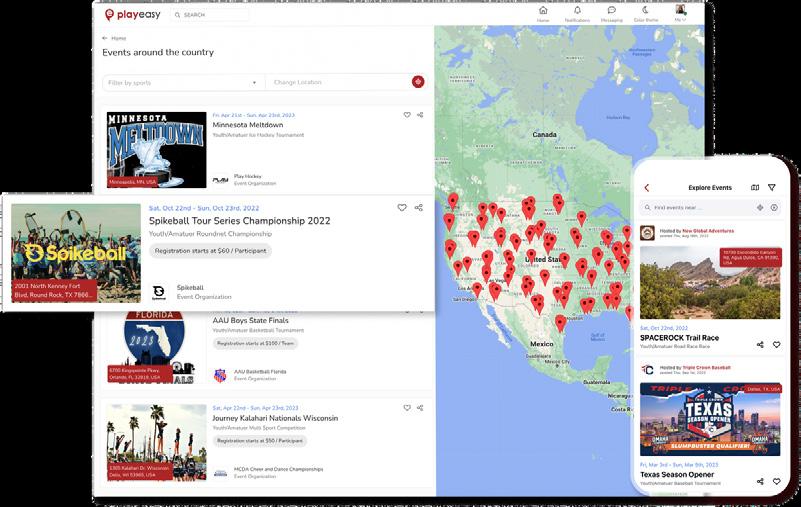
T r a c k y o u r r e s u l t s a n d g r o w t h w i t h o u t t h e w o r k
G e t n o t i f i c a t i o n s a n y t i m e u s e r s f o l l o w y o u r o r g a n i z a t i o n o r l i k e y o u r e v e n t . M e a s u r e t h e q u a l i t y
a n d q u a n t i t y o f v i s i t o r s t o y o u r e v e n t p a g e a n d o r g a n i z a t i o n p r o f i l e w i t h r e a l - t i m e a n a l y t i c s
All on one easy-to-use network
@ p l a y e a s y s p o r t s • w w w p l a y e a s y c o m • g e t a d e m o • g e t s t a r t e d • c o n t a c t u s


What are your job title and responsibilities?
Senior Sports Sales Manager – I am responsible for retaining and growing sports events and tournaments in Tempe, AZ. This includes bidding on events, partnering with our community business/stakeholders and neighboring cities in the Phoenix Valley area, attending sports industry-related events and conferences, etc.
What was your first job in the industry?
I started as the admin assistant for the sales team at Visit Tucson. I was so eager to learn that I assisted almost every department with whatever they needed help.

What aspect of your job do you like most?
My favorite part of the job is providing unforgettable experiences for our attendees, especially the youth.
What did you want to be when you grew up?
I remember distinctly when I was about 5 years old, I told everyone I wanted to be a lawyer. Maybe in the next life?
How did you get into this line of work?
Like many colleagues, I just happened to stumble upon the tourism industry. I had no idea that sports tourism existed until I started working for Visit Tucson in 2015.
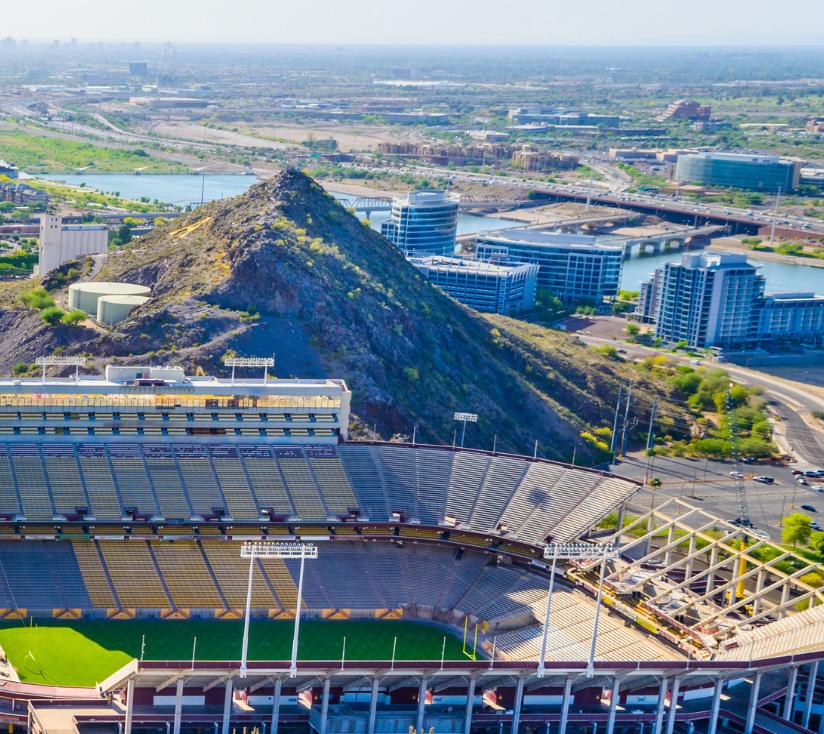
Please tell us about your role as the co-lead for the Sports ETA Young Professionals Committee.
I am currently the co-lead for the Sports ETA YP Community along with Ariana Tyler from the Greater Columbus Sports Commission. The focus is to provide educational content and networking opportunities for Young Professionals in our industry. It’s been amazing to see how many new young professionals have joined the industry within the past couple of years. I remember how daunting it can be to be the “newbie,” so being able to provide something for our community to connect and build relationships with other YPs has been very helpful.
What has been your biggest accomplishment thus far in your career?
One of the things I’m most proud of is the partnerships I’ve helped create and being able to pro-
vide opportunities and access to underserved communities. For instance, when I was in Tucson, we donated baseballs that our Korean baseball teams used for spring training. We gave them to little leagues, schools, and other organizations that didn’t have the budget to purchase these items. I’m working with our parks & rec and a non-profit organization in Tempe to create a partnership to collect sports gear and equipment. There are so many things we can do without reinventing the wheel!
How do you manage your daily tasks?
I scroll through my emails first thing in the morning and divide them up priority-wise. I am one of those people who can’t stand seeing all those unread emails, so I keep my inbox relatively “clean.” I am big on creating lists – I have a “To do list” folder in my email, a list on my phone, and a list on paper, depending on what I’m working on.
How do you stay on top of sports tourism industry trends?
I keep up to date through industry publications, LinkedIn, and my colleagues. I also stay active within Sports ETA, which helps keep me in the loop.
How are you developing key partnerships in the marketplace?
I make it a point to expand my network every chance I get. Attending industry conferences throughout the year allows me to connect with new and existing clients/colleagues. There’s nothing that can replace that face-to-face interaction.
I also believe doing business is more than just transactions; that’s why so many of my industry colleagues have become friends. When you show up authentically and are genuine, it’s so much easier to build that relationship and trust. You never know where someone will end up; a rights holder could move to another sport, or a destination representative could become a
rights holder. So check in, support them when you can, and cheer them on. At the end of the day, we’re all here to help each other succeed.
Who was your greatest mentor?
I have been fortunate enough to have had so many people in my corner, and it’s difficult only to choose one. And some of my mentors aren’t specifically tied to my career but are ones who have helped me through different stages of my personal life.
What are the top 3 things you’d want to pass on as advice to a young, up-and-coming industry professional?
Network, don’t be afraid to ask questions, and have fun! Our industry may be big, but we are a tight-knit community. Everyone is always willing to help, so don’t be afraid to put yourself out there. You’ll be surprised at how many people are invested in your success and will be your champions throughout your career.
What are you most passionate about, and how did you get started with it?
As cliché as it sounds, I’m passionate about making a difference. I’m focused on advancing diversity, equity, and inclusion in my community and the industry. Earlier on in my career, I started seeking out organizations that were doing this kind of work. From there, I took advantage of opportunities to network and learn. I took online courses, attended conferences, and, most importantly, met with and listened to people from different communities/backgrounds/lived experiences. The learning never stops, and I will continue strategically partnering with organizations and hosting events that advance this mission.


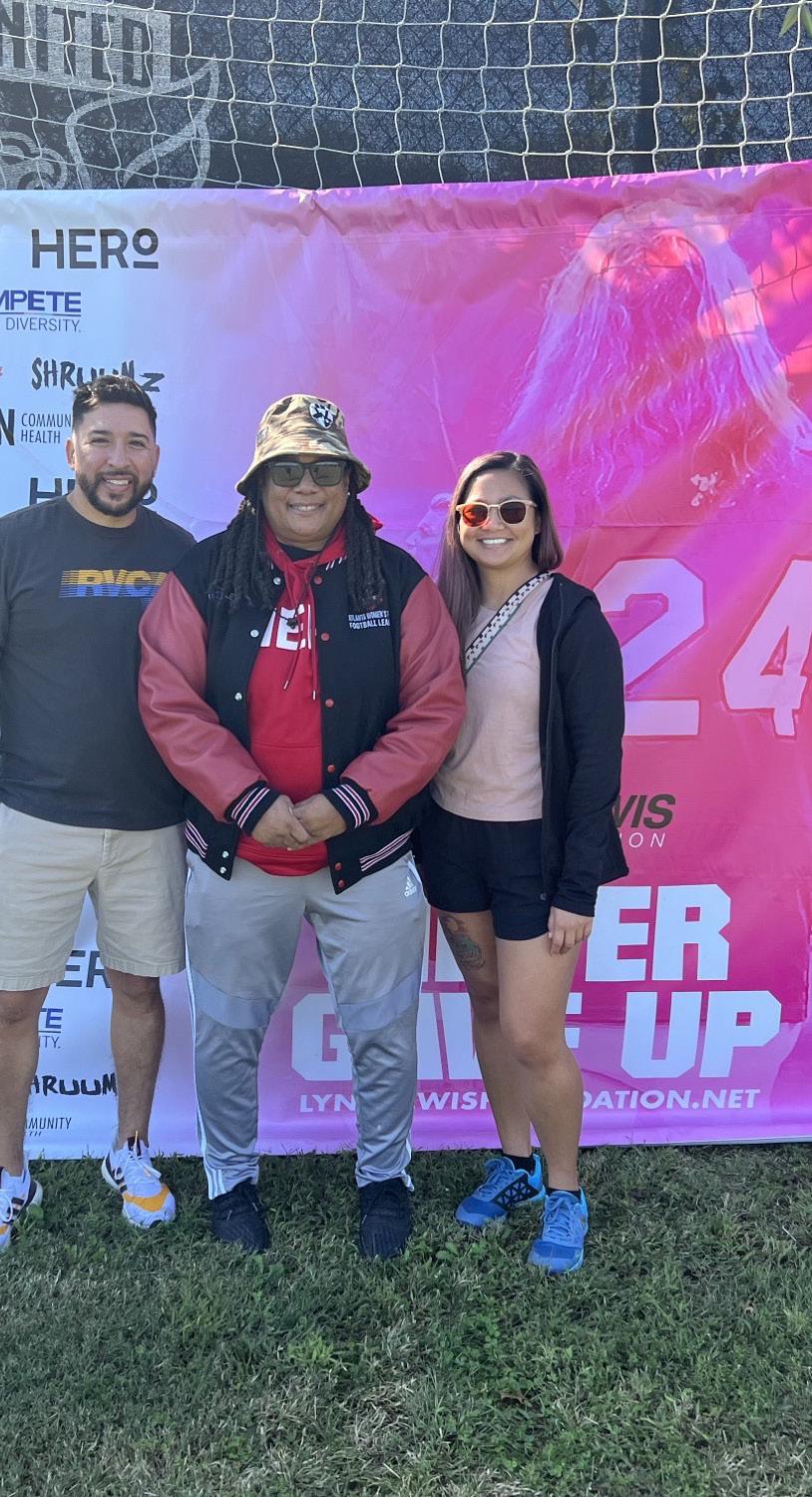

Just because you might be able to play anywhere doesn't mean you should. Bring your next sporting event to Pensacola for the facilities and hospitality. Stay for the historic culture, unique adventures, and award-winning sugar-white beaches.

PensacolaSports.org






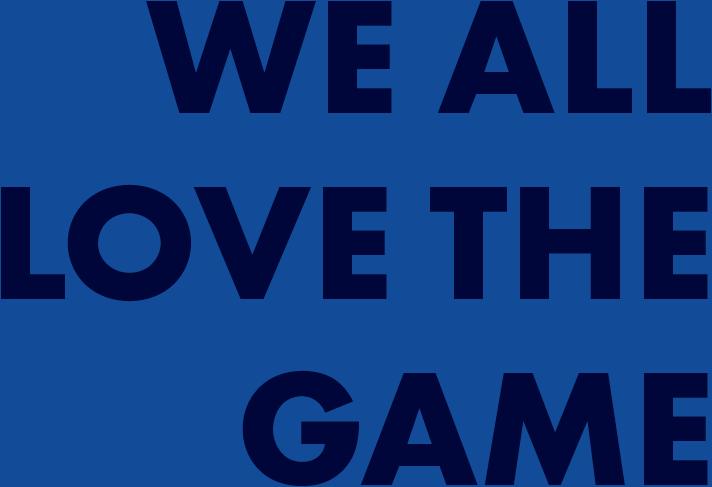


We all wish to find inexpensive flights for business and personal travel. Travel specialists know that locating deals takes more than entering dates and clicking “Complete Purchase.” Booking strategies exist, though some need to be updated.

Methods for booking travel evolve just as anything else in life. So many options exist for consumers, for example, lower-cost carriers, in more markets, and with new classifications like the basic economy. However, transparency around flight pricing has increased far beyond what existed previously. This increased transparency has helped discredit travel myths that could save you roughly $300 on flights.
Here are seven errors you are likely making when booking flights.
1. Constantly reserving the lowest fare
Delta, American, and United all offer basic economy fares that are lower than the standard economy fares and often do not allow for carry-ons, seat selection, or ticket changes. These basic economy fares look like the cheapest option, but you must either follow the airline’s rules or expect to pay extra for items included in the standard economy fare. If you must check baggage, sit with family, or prefer an aisle seat, you may save money by purchasing a standard economy fare.
Searching for and purchasing flights on Saturdays and Sundays might be time better spent considering your work schedule, but they will put a hole in your wallet. When searching for fares during popular times, you will decrease your options of finding a good deal. Instead of searching for deals on the weekends, set alerts on apps for the trips you want to take.
Buying flights months in advance to save on costs is an outdated theory. It is possible to book flights 11 months before your planned trip, though if you want the lowest ticket price, there is a better time to do so. Booking more than six months before can increase costs as airlines set their preliminary prices conservatively. On the other hand, booking just before a trip will cost you a premium. Prices typically start increasing within two weeks leading up to a trip. It is almost impossible to find a better rate in that time frame than if you had purchased at an earlier date. Over the last couple of years, booking three weeks in advance is usually where the best prices are to be found. Though to ensure you get all the fare updates apps like Google Flights, Kayak, Hopper, and others, will monitor the flights you are looking for and inform you when time to book.
Departing flights on Thursdays and Fridays offer the lowest rates, while flights departing on Sundays are the most expensive. While important to remember, the most inexpensive days to travel depend on flights and destinations. If your dates are flexible, check on and take advantage of airline errors or sale fares, resulting in deeply discounted tickets.
Most people think red eyes are the lowest-priced flight of the day. However, flying at 5:00 am is the right move. Travelers are currently experi-
encing small savings when selecting flights between 4:00 am and 8:00 am. Usually, most people wish to fly after 8:00 am and return from a trip in the late afternoon. Therefore, you will likely save even more if you book an early morning return flight. Even better, early morning flights are less likely to be delayed as most planes have been grounded for the night, and airspace is quiet. Also, airports are less crowded early in the morning, as they are busiest between 12:00 pm and 10:00 pm.
How do you start your flight search? Plug in your travel dates and allow a big search engine to do the work? Going this route might force you to miss out on budget airline fare. Most budget airlines do appear in large engine flight searches, although there are some exclusions. For instance, Southwest’s rates frequently do not appear in Google Flights. If a budget airline flies to or from your destination, directly log onto their website to review reduced rates. Some people never think of searching for one-way flights, however, in some cases they can reduce costs. Ever thought about flying into one airport and out of another? If you keep an eye on airline sales, this practice can often work out well for your bank account.
Midweek flights are always less expensive, and with that thought in mind, flexible travelers typically fly home before the weekend to avoid increased rates. This myth was discredited some time ago when it was discovered that every destination, apart from the Caribbean, offered reduced rates when the flight included a Saturday night stay.


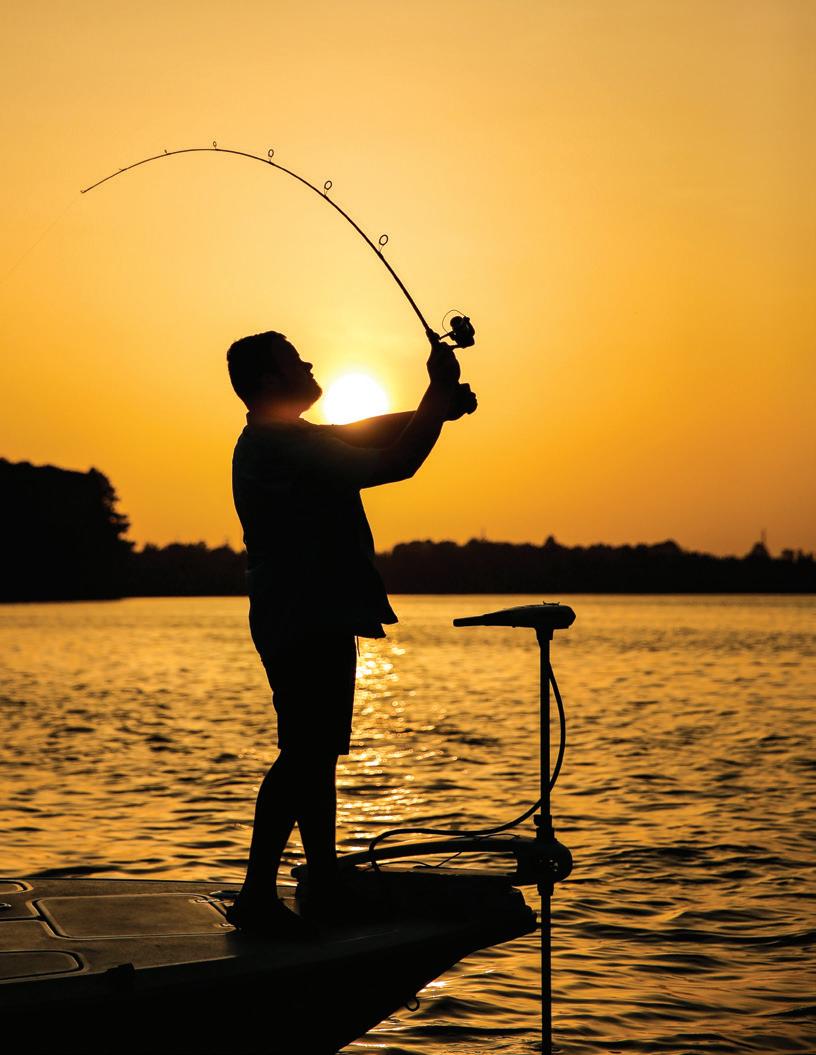


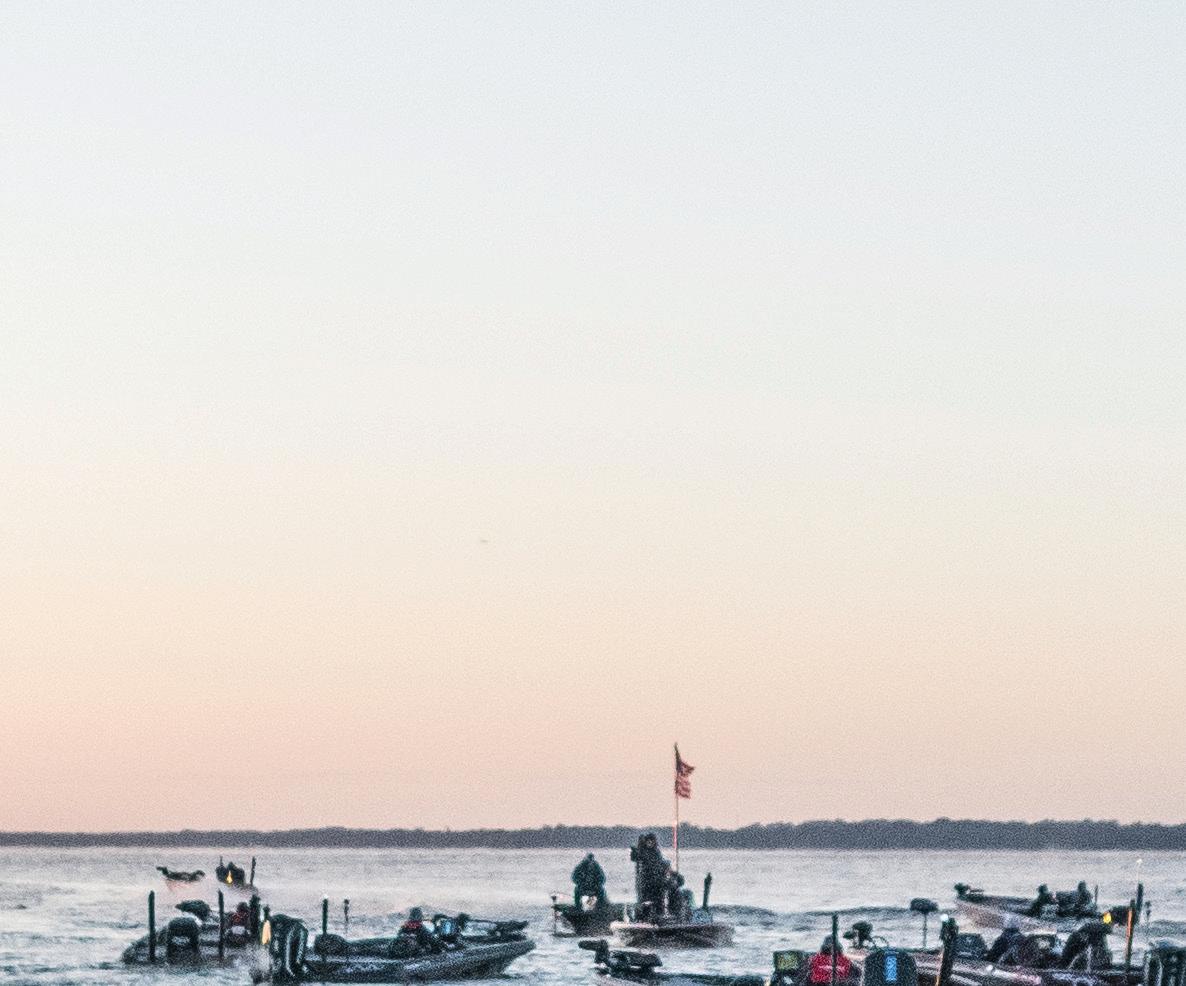
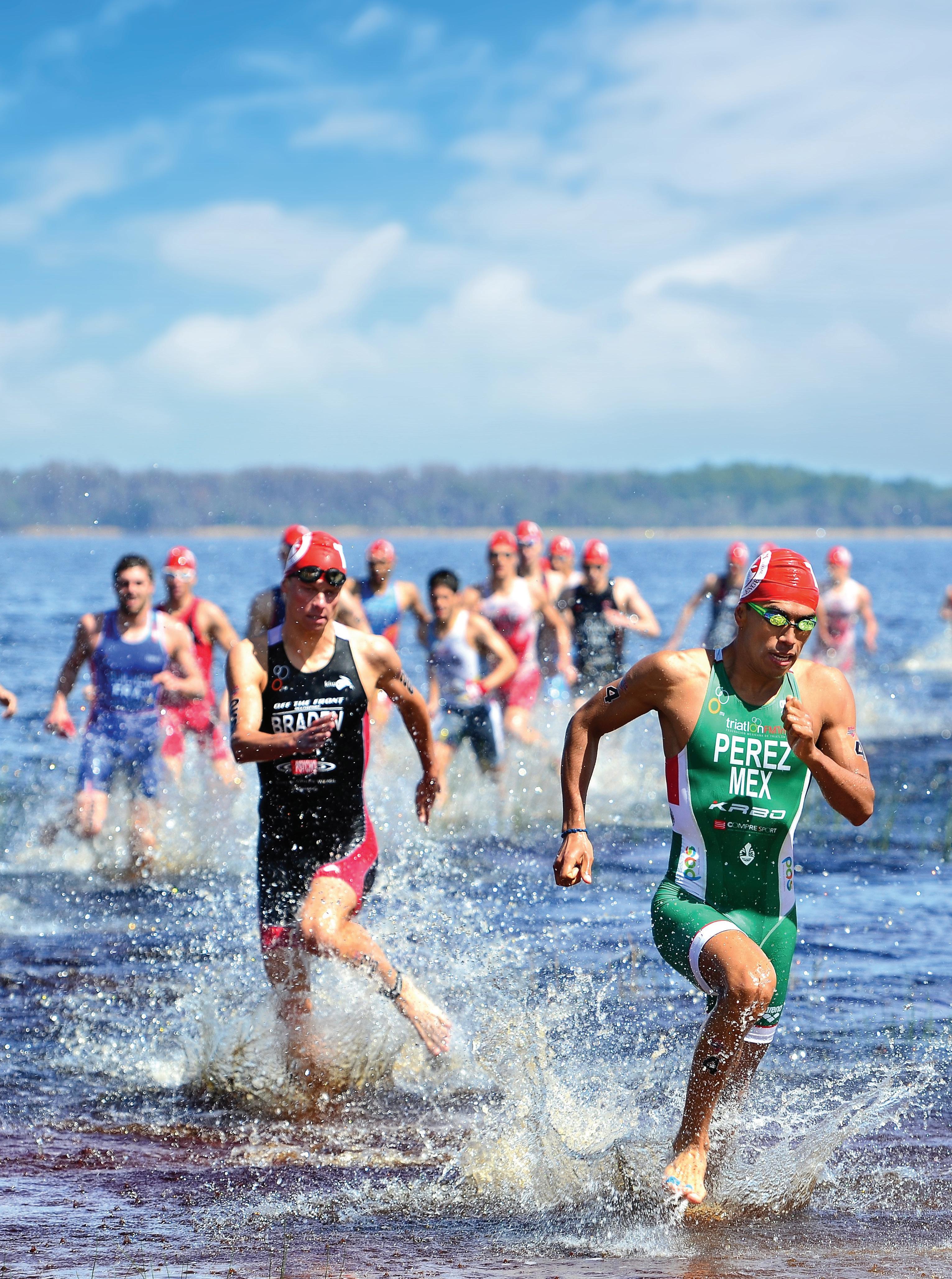
What are your job titles and responsibilities?
I am the founder and CEO of KBS Sports Strategies and Partner in The Collective BEST. My responsibilities are to provide strategic solutions and to enhance communities and organizations through sports.
What was your first job in the industry?
I started in the industry as a travel counselor at Visit Hampton’s Visitor Center. I was a recent college graduate when the opportunity presented itself- and I’m so happy that it did. That opportunity and the foresight of the CEO launched what is now a twenty-plus-year career that I am still in love with.
What aspect of your job do you like most?
Everything. It’s learning about communities and sharing the resulting strategic thoughts. It’s seeing my partner communities succeed. The continued building of a strategic arsenal impacts communities beyond room nights. It’s in seeing the beautiful struggle that the athletes endure and the smiles and wide eyes of attendees and citizens. It’s mentorship and ensuring that others can learn and have opportunities, just like I did.
What did you want to be when you grew up?
I wanted to be an athlete and a teacher.
I was in the right place at the right time. I spent some time with my adopted family in Virginia when a neighbor began talking about the need to fill a position in the visitors’ center, and I needed a job. My plan was to work this job until the school year started, and I would begin teaching. As I learned more about the tourism industry, I liked it more and more. When the talk about creating a “sports market” began, I asked for the opportunity. And I’m thankful for it being awarded.
Kris, you have taken up an endeavor near and dear to your heart and revived an event you once played in. Please tell us about your vision for the Brick City HBCU Kickoff Classic at Red Bull Arena.
Affectionately named after its host city, Newark, NJ, the annual Brick City HBCU Kickoff Classic will be the first game of the season and will be played on September 2, 2023, in Major League Soccer’s Red Bull Arena and pit Grambling State University vs Hampton University.
Beginning in 1968, select Historically Black Colleges and Universities made their annual pilgrimage to the New York area to play in a special game that often drew 60,000 or more attendees. New York City was enthralled with the athleticism and strategy on the field but was also electrified as it got its first taste of the pageantry and energy represented in the tradition of black college marching bands. That all ended in 2015 when event organizers decided to discontinue the series. Having participated in the Classic while attending Hampton, I was keenly aware of the importance of this game. Not only as a showcase for HBCU’s, but also because of its historical significance. The game was created as an instru-
ment of unification and healing in the aftermath of the assassination of Dr. Martin Luther King, Jr.
The Greater Newark Convention and Visitors Bureau has been a great partner and was looking for an event that could showcase the city while providing an impact on its citizens. Having that charge and understanding the city’s assets, we developed a concept that could do just that.
Designed with a 12-month calendar of events to engrain the Kickoff Classic and HBCU’s into the fabric of the community, the Brick City HBCU Kickoff Classic will re-establish the New York Metropolitan Area as the Mecca for black college football. The Brick City HBCU Kickoff Classic will increase the awareness of Historically Black Colleges and Universities in the Newark metropolitan area while directly impacting the local community through the awarding of scholarships, community partnerships, and local economic development.
Attendees will travel from all over the country for this game. Broadcast and marketing opportunities are abundant, and hotels and restaurants will be full. Activations will take place in all wards of the city. Sponsors and partners are enthusiastically supporting this effort. Students receive scholarship dollars, and the universities get much-needed funding for their athletic departments. It’s a win/ win for everyone.
To be honest, I can’t call upon one accomplishment, but rather a series of things. I am incredibly proud of my time in Hampton, VA, and Detroit. We did outstanding work in both communities. We launched sports

tourism initiatives and combated negative perceptions while proving our value as a community and destination. We developed facilities, staff, and service offerings making our operations more efficient and effective. We’ve created businesses that now work internationally to improve communities through sport. And we’ve worked to develop programming and events that enhance communities and provide opportunities through scholarship, participatory sports, and employment. I am proud of EVERY step in this journey.
Easier said than done, but discipline and time management. In a field where all of my partners are a priority, my time must be managed effectively. Focus, efficiency of
movement, and an outstanding team.
How do you stay on top of sports tourism industry trends?


Studying and understanding the complete ecosystem (economics, supply chains, etc.) and how it functions collaboratively. Networking with my peers keeps me on my toes. These things together increase my diversity of thought.
How are you developing key partnerships in the marketplace?
It’s about relationships and understanding platforms, abilities, and value. Attending and utilizing trade shows has been essential to my success. We can use as much technology as we want, but it always comes down to our relationship with individuals.

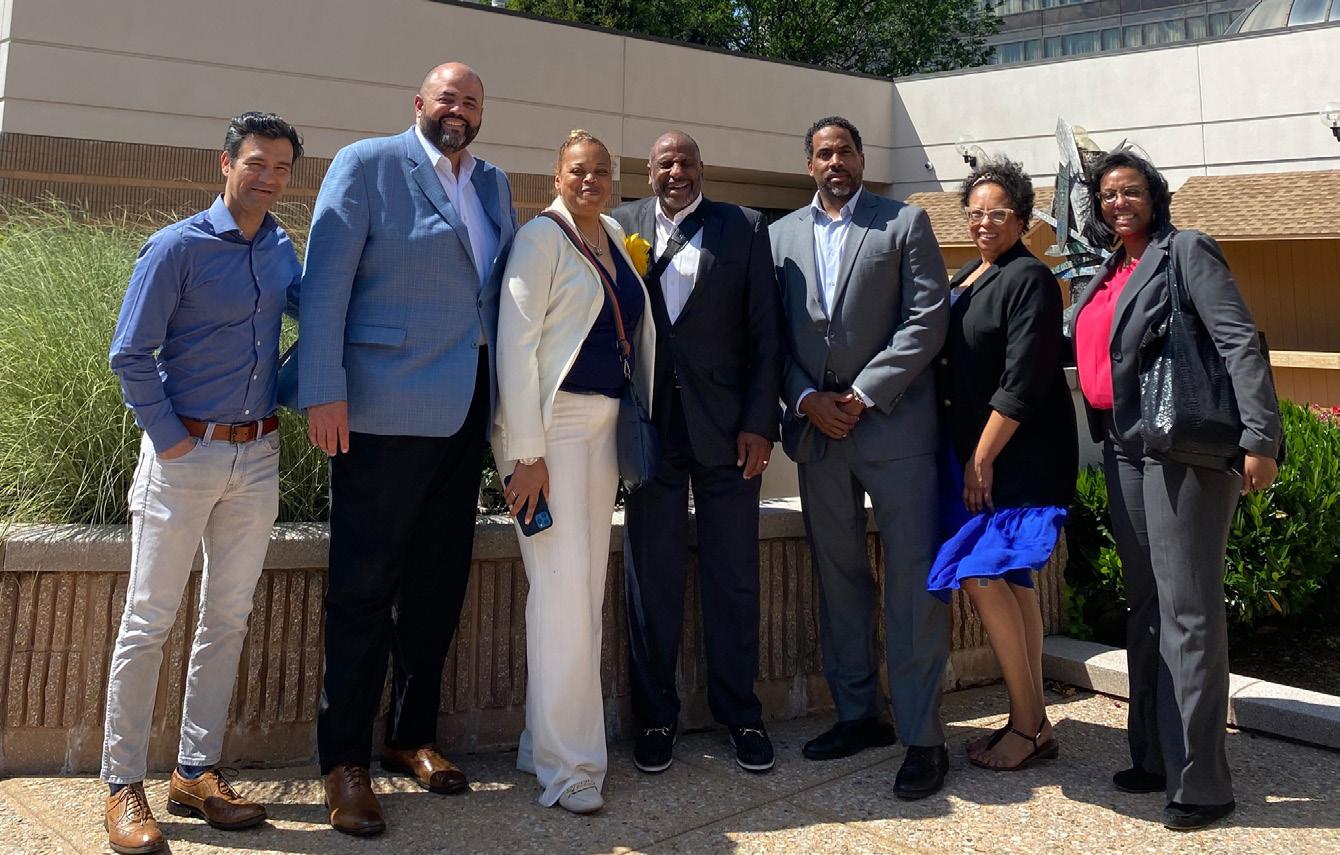
Who was your greatest mentor?
I’ve had many mentors in my life. Too many to name here. Some are your readers. I will tell you that my most profound mentor would be my father. He taught us to be enterprising but not to forget the human condition.
What are the top 3 things you’d want to pass on as advice to a young, upand-coming industry professional?
Be humble. Be genuine. Go big!
What are you most passionate about, and how did you get started?
I am most passionate about life, bottling up the experiences and lessons that come with it and sharing that with my family.


Concentrate on these 7 habits for six months, and you’ll be unrecognizable by Summer 2023.
1. Wake up at 5:00 am
Waking up early means you’re already ahead of everyone else. Waking up earlier gives you more time to:
Workout
Plan you day
Work on business strategies Be more productive
It’s a huge life hack and gives you more time to achieve your goals.
Writing before bed time will improve your quality of sleep.
Here’s what you can write down:
Your goals for tomorrow
What you’re grateful for
Any negative thoughts
This will improve your mental health.
A new skill can help you save money or build financial stability with a side hustle.
Here are a few skills we recommend:
Coding
YouTube
Digital Marketing
Content Creation
You can earn $50 - $250/Hour.
To have good mental health, you have to also have good physical health.
Exercises that have the best results:
Lifting weights
These will strengthen and tone your body fast.
5. Sit in silence 10 minutes a day
Your mind is racing with hundreds of thoughts every minute.
Take 10 minutes to:
Sit in silence
Practice mindfulness
Give your mind a break
Be present in the moment
This is an underrated habit for your mental health.
6. Create a proper sleep schedule
Sleep is essential for your:
Performance
Mental health
Reducing stress
Improving your mood
Do this for deep and quality sleep:
No screen time 2 hours before bed
No eating 2 hours before bed
Make your room cooler
Use blackout curtains
7. Take a 30 minute walk in nature
Nature is proven to help you:
Get rid of anxiety
Increase happiness
Improve your mood
It’s one of the best hacks for improving your day overall.

What is your job title and responsibilities?
As the Sports & Outdoors Sales Manager with the Louisiana Office of Tourism, I lead efforts to promote and develop Louisiana regions/ communities as ideal sports event destinations. My strategy entails marketing, sales endeavors, and community outreach to increase acquisitions, relationships, and development. The results of my methodology, commitment, and partnerships have garnered a range of sports events in Louisiana that has generated economic impacts and enhanced our quality of life.
What was your first job in the industry?
I would consider my job as Assistant Manager and Branch Manager at Enterprise Rent a Car in downtown New Orleans as my first job within the tourism industry. New Orleans is a cultural melting pot that attracts people from any and everywhere, both domestically and internationally. New Orleans also holds a reputation for hosting major sports events. During my time at that Enterprise location, we serviced tourists daily and accommodated corporate agreements for major events.

What aspect of your job do you like most?
I sincerely enjoy being a resource for my DMO
and Team Louisiana partners and community stakeholders throughout Louisiana. I want to help my partners and Louisiana stakeholders win economically and overall within our quality of life through business development and growth within our communities. When our partners succeed, all of Louisiana wins. I attribute this aspect of my station to the characteristics of servant leadership and authentic leadership.
Our team at the Louisiana Office of Tourism is committed to assisting our partners with business development and product development to grow their respective markets. We have a great team with incredible leaders encouraging a healthy collaborative workspace. As a team, we are always considering areas of opportunity and performance improvement to generate more strategies to give our partners competitive advantages and brand recognition.
This propels us to perform our job functions to the highest ability. My goal over the last five years in meeting these expectations is to establish authentic relationships by actively listening with a ‘yes mentality’ and an open mind with my colleagues, stakeholders, right holders, and industry partners.
What did you want to be when you grew up?
Growing up in the late 80s and 90s, I followed my father’s lead and became a serious New Orleans Saints fan. This was very unpopular at the time considering other winning franchises like the Cowboys and 49ers. Those were some intense seasons, so I wanted to be a running back for the New Orleans Saints to help my team win.
How did you get into this line of work?
Even though it was a tough decision, I needed to make a career move to reach new aspirations and a better work-life blend. I took the Louisiana civil service exam and applied for a new sales position within the Louisiana Office of Tourism.
I was confident in my sales ability to sell anything, so you can only imagine my excitement when I found out the position is in charge of selling and marketing 2 things that I love, sports and my state. I am truly grateful for this opportunity, and I love my job.
Please tell us about your role as Co-Chair of the Sports ETA State Association Leader Community.
This community was highly beneficial to me, especially during the initial year of the pandemic. We started to have monthly meetings to discuss trends, share resources,
and offer best practices to navigate through an unprecedented time. Moving into 2022, I was completely humbled when I was approached to co-chair this community especially considering the great job of the past leadership.

Our objective as co-chairs was to continue the efforts of the past chairs as well as the mission of the Sports Events & Tourism Association in providing opportunities for education, advocacy, resources, and networking. This community holds a significant impact in its influence to create action and disseminate information throughout respective states. Another aim as we move into a new year is to generate more content and resources for sports tourism professionals and organizations.
Our community members hold a wealth of knowledge and experiences. As a community, we can produce tools and techniques, resources for data and projects, and lessons learned for all aspects of the business to assist and grow our industry.
What has been your biggest accomplishment thus far in your career?
Over the last five years, over every prior year, we, as the Louisiana Office of Tourism and Team Louisiana, have accomplished new goals and grown to new heights that It’s hard to identify one accomplishment. Over this past year, we have acquired and hosted more sports events within communities of all shapes and sizes. We took our sales and marketing efforts to international locations. We have garnered more brand recognition and participation from our partners within trade shows. We have expanded our advocacy and educational efforts to spur more onboarding and buy-in. As we look to the new calendar year, I am very excited that our Louisiana sports tourism efforts will grow even more based on our planning.
I approach each day and project with organization, communication, and accountability systems, which I accredit to one of my past leaders. I succeeded in using this approach in my past station, so I applied the same concept to my current job. We have great systems in place operationally, and we have constantly evolving technology. For professionals within our industry, I describe our jobs as a series of projects. If we operate using organization, communication, and accountability, we maximize the probability of success and limit the dysfunction of pitfalls.
I am a fan of data and healthy examples, so I maximize opportunities to acquire this information which may come electronically or in-person within trade show breakouts, educational summits, or with industry professionals. I lean heavily on my associations as well as sports tourism publications. I create email alerts for subject items and take advantage of opportunities to sign up for industry newsletters from stakeholders, com-
petitors, rights holders, and industry partners.
How are you developing key partnerships in the marketplace?
I approach every touchpoint within our industry events to come back with takeaways and new relationships. Developing partnerships can be a series of attempts, but the first step is attempting. I think it’s best to have an open mind and a ‘yes’ mentality with business development. I also believe it is essential to be authentic and intentional in rapport. Lastly, healthy CRM practices and consistency will develop partnerships to new heights.
There are several individuals within this industry who I consider mentors. They have been great examples and guides in my career and have even provided valuable life lessons. My greatest mentor is my father, Jonathan Bloom Sr., who inspires me daily. He is always present when I need him. Throughout my life, he has provided me with a healthy example of manhood, fatherhood, leadership, humility, patience, integrity, and authenticity, among many others. Those qualities are characteristics that I want to have present for my 2 sons, so maybe they may see me in the same light.
What are the top 3 things you’d want to pass on as advice to a young, up-and-coming industry professional?
I advise first to be a student of sports tourism, the tourism industry, and great business practices. There is plenty of information or individuals who may offer this information. We must be humble enough to go out and seek this information or be willing to accept this information. It matters not the industry or years of experience; we are all still learning.
My second point is approaching the business with systems and a winning culture by consis-
tently applying organization, communication, and accountability. This formula in daily operational practices can be used to the acquisition of events or hosting events that will lead to results and lessons learned.
Finally, I think it’s essential to make every attempt to establish relationships and authentic rapport. This should be an aim for stakeholders within our community as well as industry professionals. Before the business, people and organizations buy into you. As we establish relationships, we must understand that these are a series of attempts.
What are you most passionate about, and how did you get started with it?
I have many motives that draw enthusiasm, but I am most passionate about my family. They are my ‘Why’, who give me the most joy and passion. I love being in the market or at the office, but I am excited to come home to my wife and sons. My wife is my biggest cheerleader, and one of my many goals is to be a great example for my sons.



Attaining diversity, equity, and inclusion (DE&I) within our workforce remains a challenge for many organizations in the sports tourism landscape. Even with an investment of time, energy, and resources - and money – in 2021 and 2022, many of our colleagues are not achieving their DE&I goals.
However, among team sports, DE&I standards are thriving.
Why is it that team sports can lead the way for DE&I efforts? How can industry leaders learn from team sports in this endeavor? Below are a few attributes that help distinguish the average office from a team.
As in all sports, a team’s goal is to win. All those involved, from athletes to administrators, from coaches to support staff, strive for the same goal of accomplishment through winning. However, many small successes are also necessary to be victorious at the end of a season.
Team leadership will entrust a universal understanding of goal setting. Though personnel at most organizations only sometimes fully comprehend
DE&I goals. Or the goals remain at the leadership level, and employees cannot be more involved in attaining the goal. How would you get inspired by a DE&I effort if you feel the same way? Those in leadership can find success individually, though we always witness teams and coaches winning together or losing together.
Teams, athletes, and coaches do not spin their wheels on irrelevant statistics. Instead, teams consistently recognize and evaluate a system of measurement that makes a difference. Whether it is total games won in a specific month, points scored in the third quarter, or yards gained by play type. Doing so allows for the understanding and realization of small successes and failures that can continue to be improved as you move forward.
How often have your strengths or work methods been discussed and evaluated?
It is more likely you were assigned a task or project for review to which you were expected to adapt. Your direct report did not adjust to you. You are the one who did the adjusting. That approach only leads to frustration and negativity.
By contrast, excellent coaches identify, improve, and exploit a team member’s strengths. By doing so, coaches and athletes must be flexible when required. Have you taken a Kolbe assessment? The Kolbe A Index (Instinct Test) does not measure intelligence, personality, or social style. It measures the instinctive ways you act. Kolbe’s results are used to be more productive, less stressed, and unlock enjoyment at work or in social settings. This is because once you, and your boss, understand how your mind and actions best fit into an organization, you will be better suited for success. How many bosses have had you take a Kolbe assessment and then work to highlight your strengths?
In a typical organization, accountability is transactional, meaning if you do what you are told, you get to keep your job. Oh, joy. With successful sports teams, being accountable begins with each team member. Each team member believes in their obligation to their team’s goals. Ever seen a post-game interview with a member of a losing team? You may have heard the following response to an interview question, “I have to get better.” The athlete points their finger at themselves, not others. Accountability also stretches among team members. Should a teammate be called out for the betterment of the team, it happens. Ultimately the coach is accountable. Responsibility encompasses all members of a team.

To have successful discipline traits, a coach and leader should act more like a mentor than a traditional commanding, “do as I say” boss. Always combine humility and courage when showcasing discipline and lead by listening instead of telling. Leaders should consistently demonstrate a genuine interest in ideas and contributions. And be a professional that treats people fairly and consistently.
While promoting DE&I initiatives, instituting a coaching culture enables human resources to be viewed as a coach helping leaders lead instead of a department cracking down on rules.
Think like a coach when creating a DE&I approach in your work environment. Change from the traditional command and control management model mindset to a team sports model. Your team will thrive.
Check in every issue for the unfiltered thoughts of our guest writers and contributors as they discuss the hottest topics in sports tourism. Join the conversation by tweeting us: @pushsports
In this issue, our guest writer discusses the subject of eliminating conference swag.

The coronavirus pandemic dropped swag from being produced. 2022 proved that conferences are back, but do we need to keep the tchotchkes with them?
If January 2023 showed us anything, trade shows and conferences are back in full force. We are excited about the opportunity to expand our organization’s offerings through networking with our colleagues in person, traveling, and experiencing some of the gifts that the sports tourism industry provides us all. However, are we looking forward to a return of cheap water bottles, free calendars, and flash drives we unwillingly accept and use to carry home pre-coronavirus?
For years, we in the industry have used in-person events to distribute promotional products. Some use swag to entice new clients; others may offer employees branded goods to grow loyalty. These activities have created a multi-billion-dollar promotional items industry.
Organizations, using an annual budget, work to reach the masses. So, most swag companies offer poor-quality, low-cost items in bulk. It does not take a costly research project to know that most of these items quickly end up in the garbage. Many of us leave them for the housekeeping staff when departing conferences. How often have you tossed out a weak pen or a branded keychain an organization handed you?
Organizations in the sports tourism industry are still determining whether
promotional items truly help spread awareness. Does handing out a stress ball with your logo at a conference stand out in your client’s mind, especially when they have already been offered a ton of similar items?
The delicate state of our planet has caused growing concerns, from pollution to climate change. Though promotional items are inexpensive, they take a toll on Mother Earth. Because most swag items cannot be recycled, they end up in landfills. All for an organization to get its logo in front of you.
We can make a change, as we do not need to carry on like this. The virus gave us all a “do over,” urging the world to reevaluate various aspects of life, from office environments to needs and wants. The pandemic also created a downturn in the production of promotional items as events were canceled. We are seeing our industry adhere to the old ways by bringing swag back through the resurgence of conferences. STOP. Let us take a beat as we can reassess whether we want to continue producing cheap, plastic, Earth-destroying objects.
Change is coming.
Can we see conferences provide collection containers on the trade show floor to gather unwanted swag? The destination host can deliver the items to a homeless shelter, local children’s hospital, or school board. That’s not too much to ask. And, if we were to look at these bins at the end of a conference, we’d see how much money was spent on items our colleagues do not concern themselves with, therefore displaying how much money was wasted.
If you feel you must give gifts, why not allow your clients to choose? One problem we all experience with swag is that the end user does not select the product. Set up an online store with ten or fifteen items and provide clients with a discount comp code. Allow them to choose which item they want in hopes it will be used and not go to waste. Doing so this way will require items of higher quality – a Yeti coffee mug, or a Patagonia jacket, possibly a Nike backpack – thus, you will be more selective of who you offer swag to. This is also extra incentive for that client or prospect to come by and have a conversation, rather than just ask “Is this free?”
Many destinations have done a fantastic job with more local gifts that bring to life their destination culture. These gifts offer the opportunity to tell a story and bring your colleagues closer. Like a more substantial gift, this will likely be more expensive, but the lasting impression they leave is well worth the effort.
In the end, a client that uses a product over and over, or leaves with a story is how you want to cultivate loyalty and create brand awareness.
Of course, the best and most sustainable solution is no swag at all. Instead, we can shift to spending our promotional items budget on hosting clients with branded experiences instead of branded items. Wrap your head around that.


